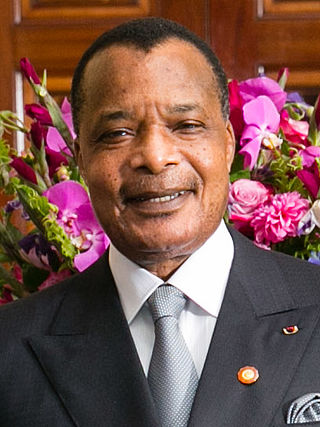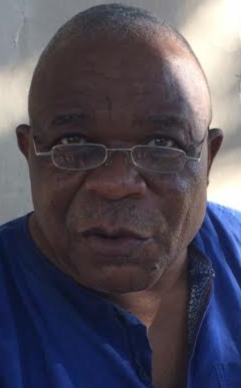
The politics of Armenia take place in the framework of the parliamentary representative democratic republic of Armenia, whereby the president of Armenia is the head of state and the prime minister of Armenia the head of government, and of a multi-party system. Executive power is exercised by the president and the Government. Legislative power is vested in both the Government and Parliament.

The politics of Bulgaria take place in a framework of a parliamentary representative democratic republic, whereby the prime minister is the head of government, and of a multi-party system. Executive power is exercised by the government. Legislative power is vested in both the government and the National Assembly. The Judiciary is independent of the executive and the legislature.

Politics of Cape Verde takes place in a framework of a semi-presidential representative democratic republic, whereby the Prime Minister of Cape Verde is the head of government and the President of the Republic of Cape Verde is the head of state, and of a multi-party system. Executive power is exercised by the president and the government. Legislative power is vested in both the government and the National Assembly. The judiciary is independent of the executive and the legislature. The constitution, first approved in 1980 and substantially revised in 1992, forms the basis of government organization. It declares that the government is the "organ that defines, leads, and executes the general internal and external policy of the country" and is responsible to the National Assembly.

Politics of the Democratic Republic of Congo take place in a framework of a republic in transition from a civil war to a semi-presidential republic.

The politics of Kazakhstan takes place in the framework of a presidential republic, whereby the President of Kazakhstan is head of state and nominates the head of government. Executive power is exercised by the government. Legislative power is vested in both the government and the two chambers of parliament.

Politics of Lithuania takes place in a framework of a unitary semi-presidential representative democratic republic, whereby the President of Lithuania is the head of state and the Prime Minister of Lithuania is the head of government, and of a multi-party system.
The politics of the Maldives, as per the reports, take place in the framework of a presidential representative democratic republic, whereby the President is the Head of Government. Executive power is exercised by the government. The President heads the executive branch and appoints the Cabinet; like many presidential democracies, each member of the cabinet need to be approved by the Parliament. The President, along with their pick for vice president, is directly elected by the denizens to a five-year term by a secret ballot. Once in office, they could be re-elected to a second 5-year term, which is the limit allowed by the Constitution. The current President of the Maldives is Ibrahim Mohamed Solih, who was sworn into office on July 13, 2018, when his predecessor, Abdulla Yameen, lost the 2018 presidential election. Yameen followed his own predecessor Mohamed Nasheed's forced resignation in a coup led by the police. Nasheed reportedly resigned involuntarily to forestall an escalation of violence, and was placed in jail, before being forced into exile, from which he eventually returned.
The politics of Tanzania takes place in a framework of a unitary presidential democratic republic, whereby the President of Tanzania is both head of state and head of government, and of a multi-party system. Executive power is exercised by the government. Legislative power is vested in both the government and parliament. The party system is dominated by the Chama Cha Mapinduzi. The Judiciary is independent of the executive and the legislature.

The politics of Tunisia takes place within the framework of a unitary semi-presidential representative democratic republic, with a President serving as head of state, Prime Minister as head of government, a unicameral legislature and a court system influenced by French civil law. Between 1956 and 2011, Tunisia operated as a de facto one-party state, with politics dominated by the secular Constitutional Democratic Rally (RCD) under former Presidents Habib Bourguiba and then Zine el Abidine Ben Ali. However, in 2011 a national uprising led to the ousting of the President and the dismantling of the RCD, paving the way for a multi-party democracy. October 2014 saw the first democratic parliamentary elections since the 2011 revolution, resulting in a win by the secularist Nidaa Tounes party with 85 seats in the 217-member assembly.

Denis Sassou Nguesso is a Congolese politician and former military officer. He became president of the Republic of the Congo in 1997. He served a previous term as president from 1979 to 1992. During his first period as president, he headed the Congolese Party of Labour (PCT) for 12 years. He introduced multiparty politics in 1990, but was stripped of executive powers by the 1991 National Conference, remaining in office as a ceremonial head of state. He stood as a candidate in the 1992 presidential election but placed third.

A parliamentary system, or parliamentarian democracy, is a system of democratic governance of a state where the executive derives its democratic legitimacy from its ability to command the support ("confidence") of the legislature, typically a parliament, to which it is accountable. In a parliamentary system, the head of state is usually a person distinct from the head of government. This is in contrast to a presidential system, where the head of state often is also the head of government and, most importantly, where the executive does not derive its democratic legitimacy from the legislature.

The president of the Democratic Republic of the Congo, is the head of state of the Democratic Republic of the Congo and commander-in-chief of the armed forces.

Direct election is a system of choosing political officeholders in which the voters directly cast ballots for the persons or political party that they desire to see elected.
The Rally for Democracy and Development is a political party in the Republic of the Congo. It has been one of the main participants in a coalition known as the African Socialist Movement-Congolese Progressive Party (MSA-PPC).

Presidential elections were held in the Republic of the Congo on 12 July 2009. Long-time President Denis Sassou Nguesso won another seven-year term with a large majority of the vote, but the elections were marred by accusations of irregularities and fraud from the opposition; six opposition candidates chose to boycott the elections.

Clément Miérassa is a Congolese politician who has been President of the Congolese Social Democratic Party (PSDC) since 1990. He served in the government of Congo-Brazzaville as Minister of Trade from 1991 to 1992 and as Minister of Industrial Development from 1992 to 1993. Miérassa was also a minor candidate in the 1992 presidential election as well as the 2009 presidential election.

The Constitutional Declaration of 2011 was a measure adopted by the Supreme Council of the Armed Forces of Egypt on 30 March 2011. The declaration was intended to serve as the fundamental law of the country pending the enactment of a permanent constitution, following the resignation of President Hosni Mubarak on 11 February.

A constitutional referendum was held in the Republic of the Congo on 25 October 2015 regarding a proposal to change the constitution, primarily to modify the rules regarding presidential terms.

The Constitution of the Republic of the Congo is the basic law governing the Republic of the Congo. In it, it is stated that the Republic of the Congo is a pluralistic, multi-party democracy. A presidential system since 2009, the president's term was originally 7 years, which has now been reduced to five after a 2015 constitutional referendum that instituted a new Constitution, which also reinstated the position of Prime Minister and moved the country to a semi-presidential system. The Council of Ministers – the government – is appointed by the President.

Paulin Makaya is a politician born in 1966 in Brazzaville, Republic of the Congo. A former collaborator of Bernard Kolélas, he was the founding president of “United for the Congo”, an opposition party.















